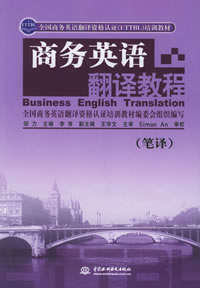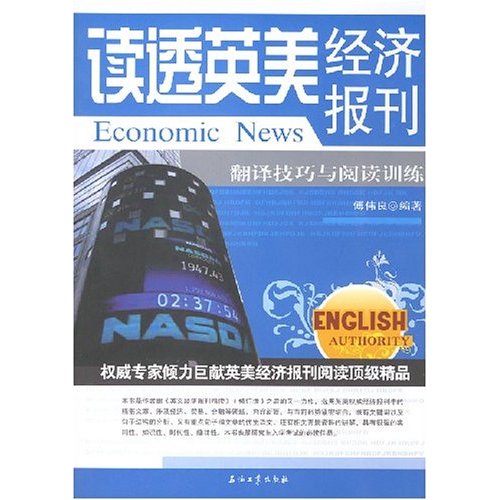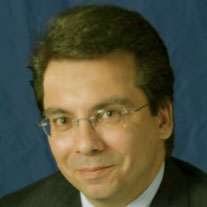Getting Started as a Translator:Gleanings from Honyaku (第二部分)
作者:古龙 2009-07-04




语际翻译公司 转载请注明https://www.scientrans.com
∗本栏目部分文章内容来自互联网,部分已经过本站编辑和整理,如有版权事宜请联系Email/MSN jesczhao@hotmail.com
John De Hoog
________________________________________
I didn't mean to imply that I didn't have a university education. What I said was that I had "zero years of college Japanese." My university degrees are in linguistics and mathematics, and the languages I studied were Russian (which I can still read) and Chinese (which I've long since forgotten). But what I studied in college and graduate school has helped me only indirectly in my work as a translator, and has been of much less use than the things I have learned outside of academia.
I came to Japan at the age of 26 with no knowledge of the language at all, and I didn't acquire much for the first six months or so. Then, because my application for a work visa was rejected, I had to enroll full-time in a Japanese language school so that I wouldn't get thrown out of the country. The school I chose was the cheapest in Tokyo at the time; that's why I chose it. Some of the teachers at the school were good and a few were horrible (one of the latter was fired and is now a popular street palm-reader in Ginza). I got excited about learning Japanese and I spent almost all my non-English-teaching time for the next couple of years studying and reading Japanese. I graduated from the school and passed the Japanese Language Proficiency Exam (Level 1) at about the same time I started looking for work as a translator.
Though I made some blunders in my early translations (I make them still), I think I was ready to begin translating when I did. My brief post-university work experience in the U.S. had involved proofreading and copyediting, so I was confident of my ability to produce clean, readable English. I also had, and still have, a strong distaste for "translationese," those literal, unnatural translations that some translators produce. A lifetime spent reading hasn't hurt, either.
Among the jobs I've done over the past year: The history of an acting company for a theater program. A series of papers on the Japanese and world oil industry. Several PR video scripts. A project proposal for an oil refinery to be built in Taiwan. Advertising brochures for televisions, VCRs, stereos, and batteries. Several construction machinery catalogues. An instruction manual for a currency processing machine. Many business letters and reports. "The Kodansha Furigana English-Japanese Dictionary" (as editor/adapter) and "Japanese Verbs at a Glance" (as translator). Aside from these last two, which did require some background in linguistics, none of these jobs used any knowledge that I had acquired at university.
Autodidacts of the world, unite!
You have nothing to lose but your resumes!
Tom Gally
________________________________________
In the hope of pressing home the point that there are more ways than one to make a living as a translator, here's my experience. I was two years in Japan without any formal training in the language when I undertook my first translation for pay. After two years working in-house, I became a full-time freelancer, full-time meaning ten to fifteen hours a week. I now work for two (large) direct clients, both of whom have other translators available, and one agency. For six to seven months out of the year, I'm quite busy in Tokyo. The rest of the year is spent on the road -- cycling, kayaking, or just bumming around. I usually carry a laptop and modem and a few EBs and will take on large jobs as they come up.
Although proximity has its virtues, today's technology makes it possible to translate from just about anywhere in the world. (Naturally, you need to establish a relationship with the client first.) I don't charge as much per page as some of the people on this list, but I've always considered that differential something of a "freedom tax." For me, this kind of freedom is the principal reason I do the work I do.
Chris Green
________________________________________
Some of the posts on this topic seem to be equating good Japanese ability with good translating ability, but that is not necessarily the case. Although language skills are undoubtedly vital, they do not in themselves guarantee the ability to convey meaning from one language to another. Transfer skills are also necessary.
- 评论
- seme:文章内容文章内容文章内容文章内容文章内容文章内容文章内容文章内容文章内容 章内容文章内容文章内容文章内容文章内容
- seme:文章内容文章内容文章内容文章内容文章内容文章内容文章内容文章内容文章内容 章内容文章内容文章内容文章内容文章内容

- 谈翻译观念的嬗变与翻译技能的训练
2009-6-15 15:33:10 - 《高等学校英语专业英语教学大纲》中规定,大学生通过四年的在校学习,“能运用翻译的理论和技巧,将英美报刊上的文章以及文学原著译成汉语,或将我国报刊、杂志上的文章和一般文学作品译成英语……。译文要求忠实...
- 翻译与网络营销
2009-6-11 0:02:31 - Translation and Your International E-Commerce Strategy Most businesses realize that they ...
期刊征稿
- 第四届IEEE生物信息与生…
2009-6-30 19:42:01 - 基本信息 主办单位: 四川大学,IEEE生物医学工程协会(EMBS) 承办单位 开始日期 2010/06/18 结束日期 截稿日期 2009/1...
- 第九届全国光电技术学术…
2009-6-30 19:35:58 - 基本信息主办单位: 中国宇航学会光电技术专业委员会承办单位 开始日期 2009/11/01结束日期 截稿日期 2009...
















